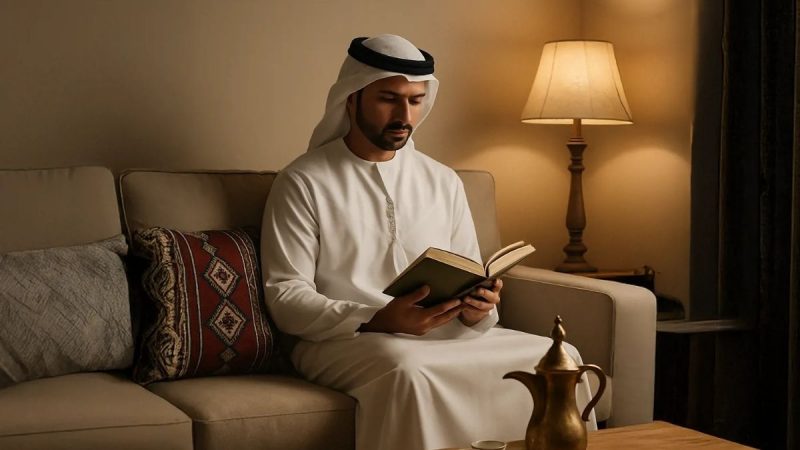The Abu Dhabi Arabic Language Centre has joined hands with Amazon to create a brand-new Arabic digital library. The announcement landed on the opening day of the International Congress of Arabic and Creative Industries at Etihad Arena, a fitting stage for such a move.
Abu Dhabi Teams Up With Amazon To Launch Arabic Digital Library
Now, let’s be honest: Arabic literature has always deserved a bigger digital footprint. And according to a report by The National, with this collaboration, the promise is simple: take the centre’s curatorial expertise, mix it with Amazon’s massive reach, and suddenly, millions of Arabic readers (and learners) gain access to an online treasure trove.
Not The First Initiative, But Certainly Ambitious
Of course, this isn’t the region’s first digital library. Dubai already has one, launched back in 2018, which now boasts over 245,000 titles covering everything from research papers to audiobooks. But Abu Dhabi’s new venture is shaping up to be more than just another archive. It’s an expansion, an attempt to solidify the UAE’s role as a cultural hub where Arabic doesn’t just survive, it thrives.
The exact launch date remains under wraps, which, truth be told, makes the anticipation even greater.
Language Pride, Lingering Concerns
The library’s announcement was followed by a presentation that turned heads, a large-scale survey of Arab youth. The Abu Dhabi Arabic Language Centre went straight to the source, young people themselves. Around 4,000 voices from 10 different Arab countries fed into the survey.
And the results? On one hand, A vast majority of 84% of respondents consider Arabic core to their personal identity. That’s a resounding vote of pride. On the other hand, nearly two-thirds admitted they worry about the language losing relevance in science, tech, and digital spaces. To be fair, it’s not a baseless fear. Walk into a coding bootcamp or skim scientific journals, and Arabic is often sidelined.
Young people aren’t asking for the moon, just a smarter approach. They want Arabic taught in ways that actually work: fresher curriculam, better teaching, and real institutional backing. Less endless memorising, more using the language in real life. And honestly, they’re right.
Also Read: Dubai: Arabic Now Mandatory In Early Learning For All Schools; Guidelines Inside
Creative Industries In The Spotlight
The congress wasn’t just about language. It also spotlighted the creative industries, which now employ more than 400,000 people in the UAE, contributing roughly 4 per cent of GDP. Encouraging numbers, but the survey revealed another tension. Many young Arabs said they would love to enter creative fields, yet cited family pressure, financial risks, and a lack of opportunities as real barriers. Come on, we all know how that conversation goes: “Artist? Writer? How about engineering instead?”
KHDA Pushes Arabic Language Inclusion In Early Education
Meanwhile, over in Dubai, a different but related policy is rolling out. The Knowledge and Human Development Authority (KHDA) has made Arabic instruction mandatory in early childhood education. Starting in September, kids aged four to six will be the first wave, with the programme eventually extending all the way down to toddlers.
It’s a bold experiment. A two-year evaluation will measure how effective the first phase is before scaling up. But if it works, we could see children across the Emirate growing up fluent, confident, and comfortable in Arabic, not as an academic requirement, but as a natural part of life.
Also Read: Habibi, Come To Dubai!; Indian Girl In Dubai Praises Safety For Women, Walks Alone Around At 2:30 Am
Why It All Matters
When you strip it down, both Abu Dhabi’s digital library and Dubai’s early education drive point to the same reality: Arabic is standing at a crossroads. People love it, no question there. But in practice, the language is battling for space in a world that’s moving fast, digital-first, and global to the core.
And that’s what makes this Amazon partnership so significant. It’s not just about books. It’s about keeping Arabic alive, relevant, and future-ready, so that when the next generation logs in, scrolls, and clicks, they find their own language waiting for them.
Cover Image Courtesy: Abu Dhabi Arabic Language Centre/Website

